
‘Understand Me – Support Me – Enable Me’
Nurturing the inclusive, holistic and responsive support, growth, development and wellbeing for young children of all abilities.
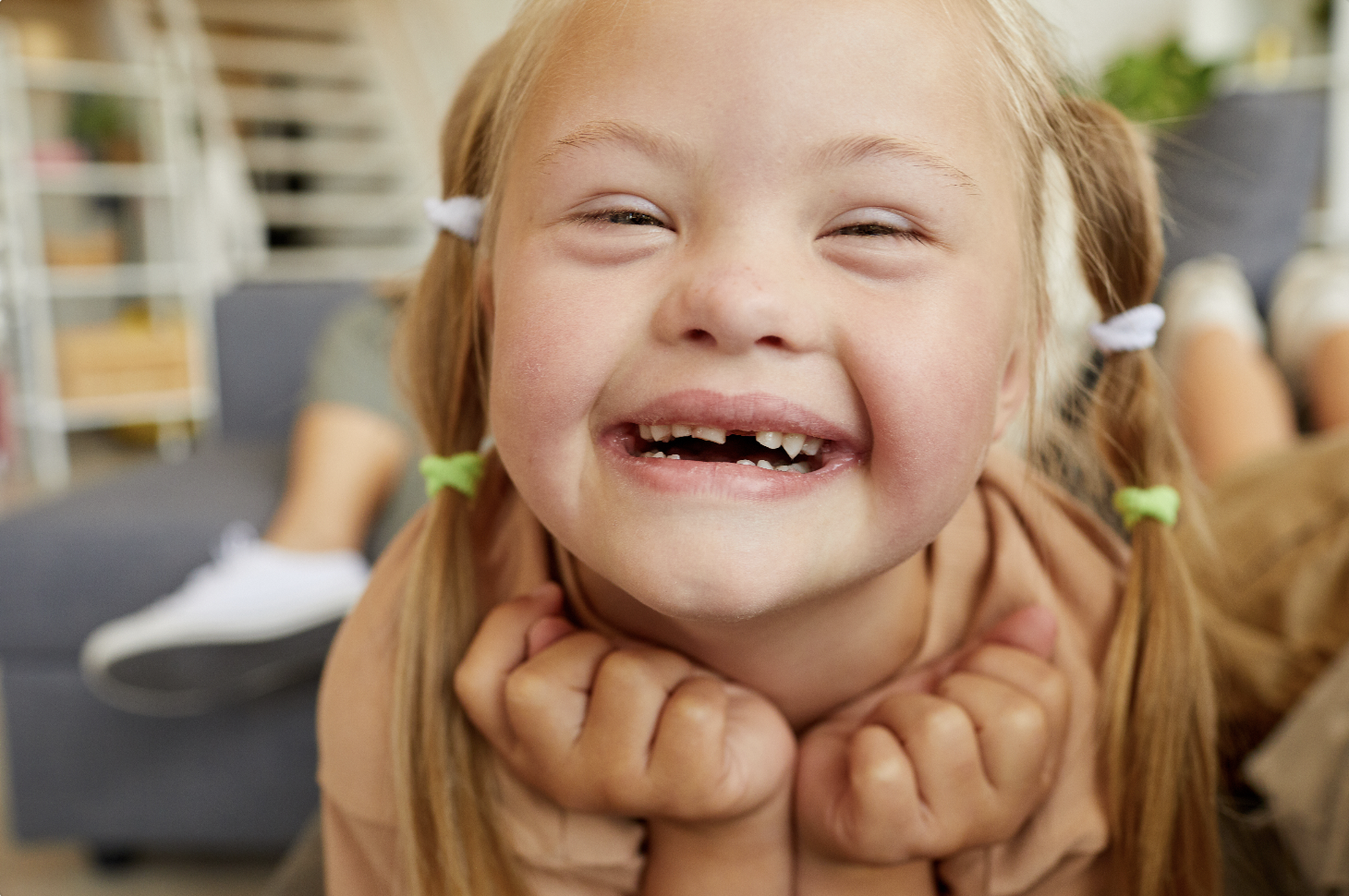
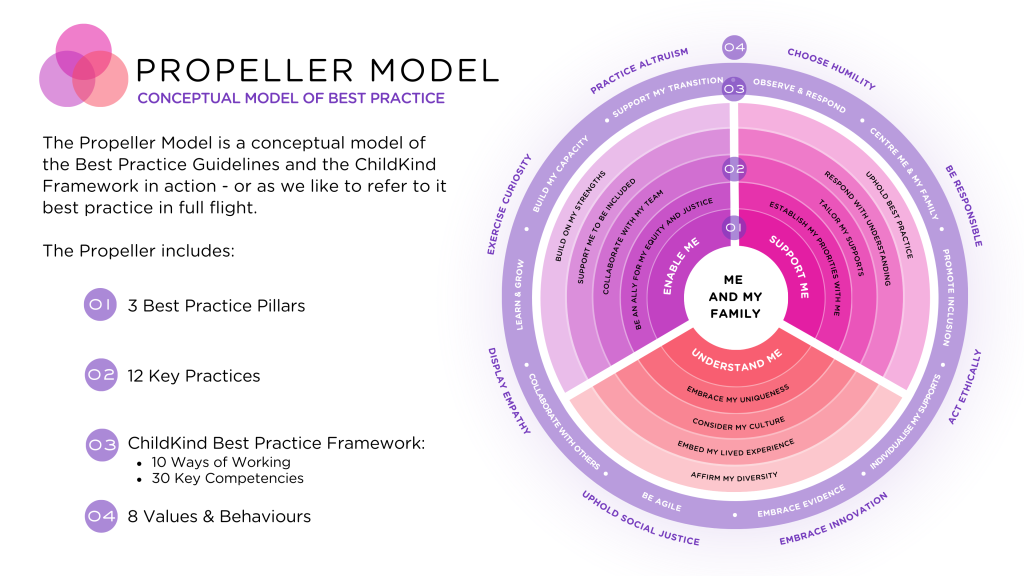
The ChildKind Best Practice Framework has been developed for a wide range of practitioners across various service systems who play pivotal roles in the lives of young children with disabilities and developmental delays.
Each of these professionals contributes to the child’s developmental journey, and the framework provides them with a consistent approach grounded in best practice. Key audiences for the framework include:
The ChildKind Best Practice Framework has been created to support disability practitioners, who often provide essential day-to-day practical assistance to young children with disability, developmental delay, and neurodivergence, as well as their families, and play a crucial role in ensuring children receive consistent, compassionate access and care in their daily lives. From helping with routine activities to fostering independence and social inclusion, disability practitioners often directly interact with children and families in their home environments and communities.
The ChildKind Best Practice Framework offers these practitioners clear, actionable guidance rooted in best practice, ensuring that they can provide support that is both meaningful and aligned with the needs of each child and family.
Allied health professionals and early childhood intervention specialists are deeply involved in providing tailored support for children with disability, developmental delay or neurodivergence. These practitioners work closely with children and their families to develop and implement personalised programs that promote developmental progress.
The ChildKind Best Practice Framework offers these practitioners a set of competencies that ensure their approach is grounded in best practice, is family-centred, and are culturally responsive.
The framework emphasises collaboration across disciplines and encourages professionals to engage families as active participants in their child’s care, whilst reinforcing the importance of continuous professional development.
Healthcare practitioners, such as paediatricians, general practitioners, and mental health specialists, are often the first point of contact for families concerned about their child’s development. These practitioners are responsible for diagnosing, treating, referring and monitoring children with disabilities or developmental delays.
The ChildKind framework ensures that healthcare professionals offer clinically sound treatments within a holistic, family-centred approach. This approach helps practitioners communicate more effectively with families, collaborate with professionals from other fields, and ensure that care is inclusive and developmentally appropriate. It equips them to understand and respond to the broader needs of children beyond their medical conditions, including their emotional, social, and developmental wellbeing.
Educators, including primary teachers, early childcare educators, educational support staff, dance teachers, hobby instructors and sport teachers are central to a child’s daily life, offering learning opportunities that foster development. Educators are often in the best position to notice early signs of developmental delays or disabilities.
The ChildKind Best Practice Framework equips educators with the knowledge and skills to create inclusive learning environments where every child, regardless of their abilities or challenges, can thrive. The framework emphasises the importance of inclusive teaching practices, collaboration with families and other professionals, and promoting positive outcomes for all children.
Educators will be better equipped to support all children equally within mainstream educational settings, enabling true inclusion.
Social workers, case managers, and community service providers often serve as vital supports and service providers for families navigating the challenges of caring for a child with a disability or developmental delay.
They help families connect with their community, access necessary services, provide emotional support, and assist in advocating for their child’s needs within various systems.
For these practitioners, the ChildKind framework offers guidance on delivering holistic, inclusive, and family-centred support. The framework helps them understand the developmental and emotional needs of children and families, equipping them to provide more effective advocacy, navigate system complexities, and build strong, trusting relationships with the families they serve.
Leaders, administrators, and policymakers are key to creating systems and environments that support the best outcomes for young children. They are responsible for setting standards, designing inclusive educational policies, and ensuring that services are delivered in a way that meets the needs of all children, particularly those with disability, developmental delay, and neurodivergence.
The ChildKind Best Practice Framework provides these leaders with the insights needed to establish pathways that prioritise inclusion, equity, and best practice. By using the framework to inform policy and system design, these decision-makers can create environments where practitioners across various sectors are working towards the same goal: ensuring that all children, regardless of their developmental needs, are supported to reach their full potential.
The ChildKind Best Practice Framework acknowledges the complexity of supporting children with diverse needs, while equipping you with the knowledge and competencies to navigate that complexity with compassion and integrity.
Childkind is a first-of-its-kind framework to support the establishment of a truly inclusive early childhood developmental framework that universally supports all developing children.
Together we can ensure that every child receives the care and support they deserve.
We do this through the best practice pillars – Understand Me, Support Me and Enable Me. The ChildKind Best Practice Framework ensures that every practitioner is aligned with the best practice principles and that there is a consistent, holistic approach to supporting young children and their families.
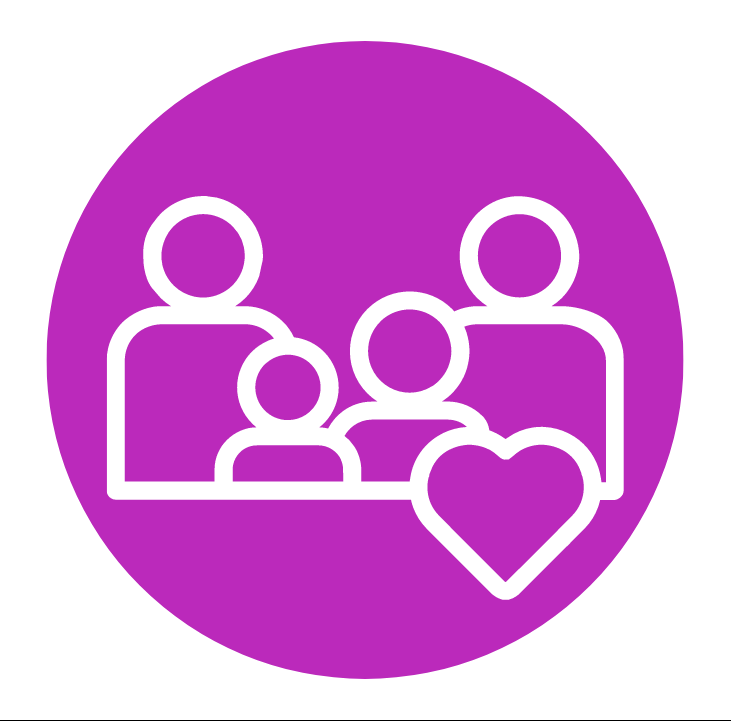
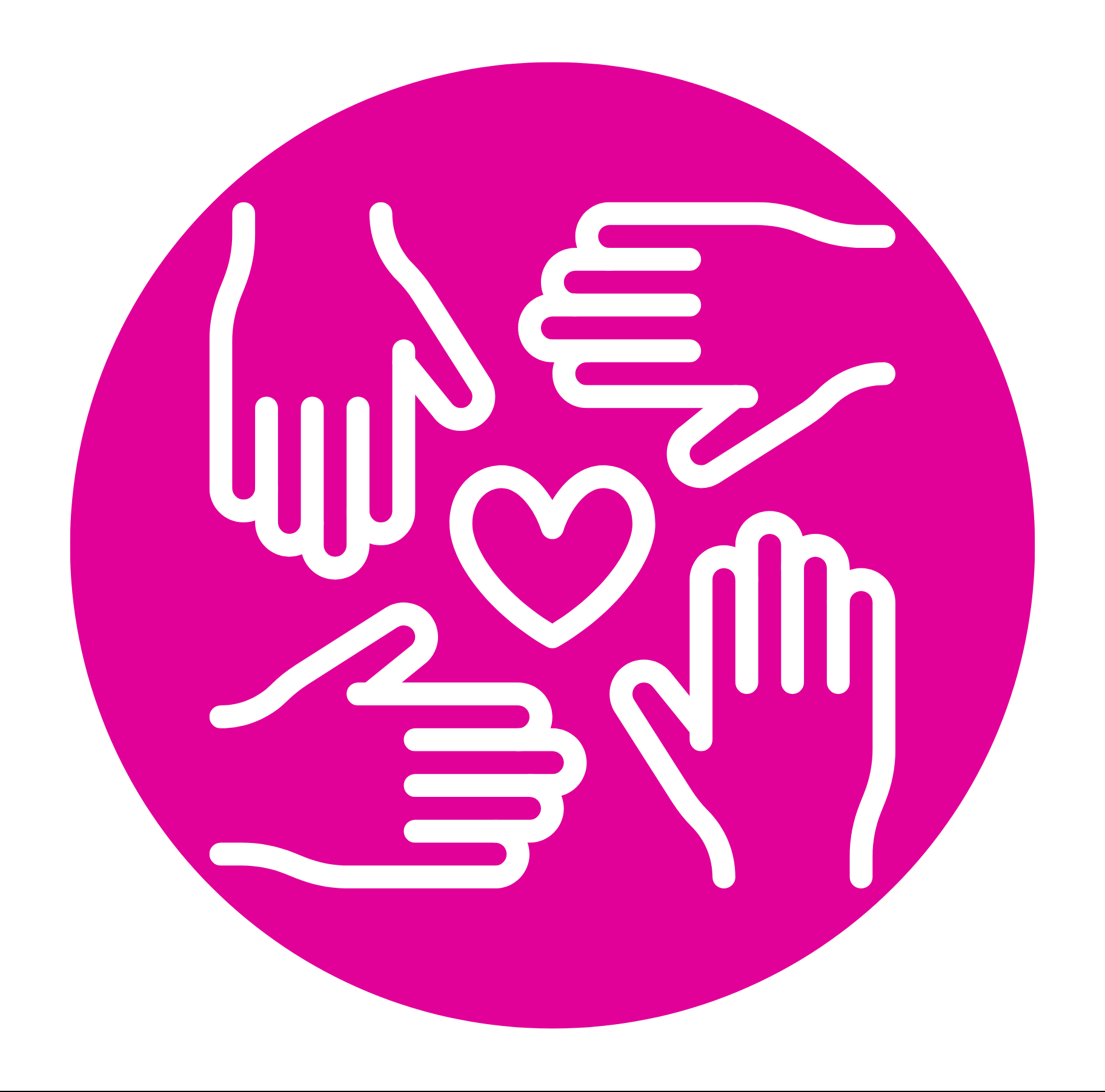
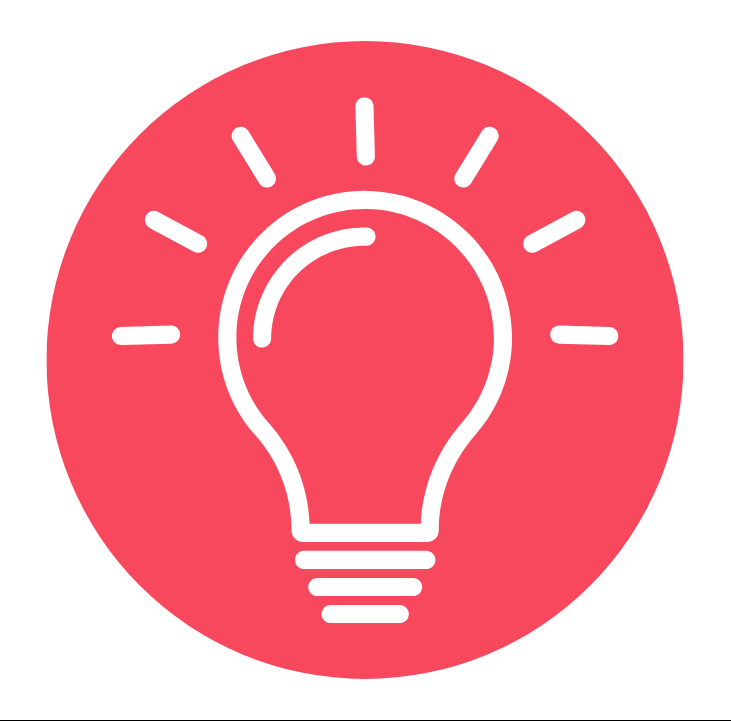
Imagine a world of unlimited possibility. A world without barriers, where opportunity is infinite; a world where we can be as responsive as we desire; a world where the benefit of effortless access enables profound social and economic dividends for children and their families, communities, and for business and government; a world where children have every opportunity to thrive. At Reimagine Australia this is the world we dream of.
Reimagine Australia, formerly known as Early Childhood Intervention Australia (ECIA), has been the leading Australian body for best practice and early childhood outcomes for very young children with disability, developmental delay and neurodivergence, and their families, since 1986.
As the singular national organisation that works with families, the practitioners who support them, government, service providers, and community to enable the very best outcomes for young developing children and their families, we seek to be courageous advocates for systems redesign and reshaped policy approaches, to ensure that responsive and inclusive supports and services are embedded as a cornerstone of Australian society.
Reimagine Australia’s purpose is to ensure that, through best-practice, all children, including those with disability, developmental delay, and neurodivergence, and their families, have every opportunity to realise their potential during their future-shaping early years.
For more than 38 years, Reimagine Australia has been leading the early childhood sector in embedding best practice and inclusive design at its core. We do this by working in continuous co-design with families and the practitioners who support them, to reimagine the future by enabling life-changing outcomes for their children.
Reimagine Australia dreams of a tomorrow where the eco-system supporting families of young children provides them every opportunity to thrive, and where inclusion is not a goal, it’s our way of life. Together we can change the future. Are you ready to Reimagine?